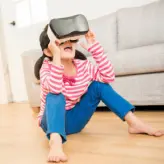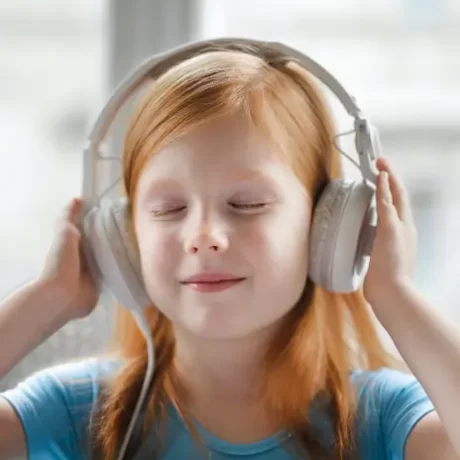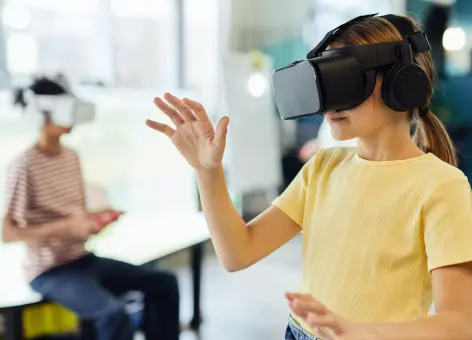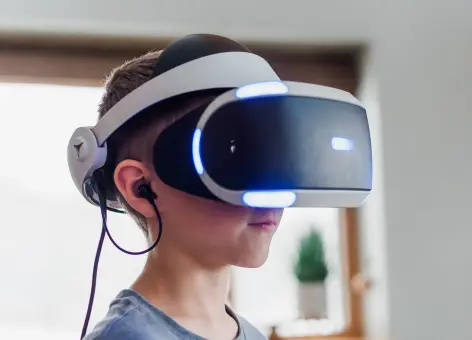

Specialty Services

What is Therapeutic Listening?

Therapeutic Listening® is a powerful, multi-dimensional approach to sound therapy that goes beyond the act of simply hearing. Our ability to listen is a vital function of the entire brain, impacting the way we process information, react to our environment, and even behave.
At its core, Therapeutic Listening recognizes that the auditory system is connected to all levels of brain function, and can be used to influence important changes in our physiology and sensory experiences. With its unique music-based therapy, Therapeutic Listening provides a precise, controlled approach to sensory integration, creating synchronized and organized patterns of sound to trigger the nervous system’s self-organizing capabilities.
We know that many therapists currently trained in Therapeutic Listening consider it an essential tool to speed up and intensify their sensory integration treatment modalities. With its ability to highlight and modify specific parts of the sound spectrum, Therapeutic Listening is a powerful intervention that can provide transformative results.
What Sets Therapeutic Listening Apart?

Unlike other listening therapy programs, Therapeutic Listening is not a rigid formula that must be followed in a particular sequence. In fact, the various albums included in the program can be arranged in multiple ways to address each client’s specific needs and goals. This sound-based intervention empowers therapists to select the most appropriate album based on practical guidelines and a client’s response to each music selection, instead of adhering to a predetermined program.
Using client-centered principles as an individual therapy tool, Therapeutic Listening can be used on its own or in conjunction with other sensorimotor-based therapies as part of a sensory diet at home or in the clinic. This unique approach offers a broader range of applications and is suitable for a variety of sensory-based clinical issues.
If you’re looking for a more flexible and individualized listening therapy program, Therapeutic Listening is a valuable tool worth considering.
Therapeutic Listening: Who Can Benefit?
- Poor attention
- Communication struggles (verbal and non-verbal)
- Challenges adapting to changes in routine
- Sleep disorders, bowel and bladder control, and eating difficulties
- Difficulties regulating energy levels (hyperactivity or low arousal)
- Challenges perceiving and navigating space
- Trouble following directions
- Poor timing and sequencing of motor skills
- Difficulty responding to sounds and verbal directions
- Mood swings and irritability
- Abnormal response to sensory stimuli (sounds, touch, taste, pain)
- Postural insecurity (height phobia, playground equipment)
- Challenges adapting to changes in routine
- Poor praxis and motor planning: struggling to plan and complete tasks
- Limited play skills and difficulties with peer interaction
Consult your therapist to see if Therapeutic Listening could be beneficial for you.
Virtual Reality as a Treatment Modality
Does your child struggle with social skills and building relationships? Have you and your child’s therapist found it difficult to address social skills in a 1:1 setting? Through the use of virtual reality technology, this innovative therapy platform known as Floreo provides immersive experiences that cater to the needs of individuals of all ages who are on the neurodiverse spectrum. Backed by research and science, Floreo allows therapy to happen anywhere and at anytime, making it an accessible and engaging way to improve social skills without the added pressure of feeling self-conscious. With the support of your therapist (learning coach), Floreo’s immersive VR experiences are designed to cater to your individual needs.


What Makes Floreo Unique?
Floreo provides a robust library of resources that can be tailored to achieve unique programming goals. By using immersive solutions, difficult to teach skills become more engaging and collaborative, translating to an improved learning experience. Floreo’s innovative approach to therapy offers a level of participation that ensures everyone can be involved in the growth process.
- Immersive Virtual Reality to Improve Police Interaction Skills in Adolescents and Adults with Autism Spectrum Disorder
- Parish-Morris, J., Solórzano, R., Ravindran, V., Sazawal, V., Turnacioglu, S., Zitter, A., Miller, J. & McCleery, J. (2018). Immersive Virtual Reality to Improve Police Interaction Skills in Adolescents and Adults with Autism Spectrum Disorder: Preliminary Results of a Feasibility and Safety Trial. Proc of the 23rd Annual CyberPsychology, CyberTherapy & Social Networking Conference, Gatineau, Canada.
- Experiences with Virtual Reality-Based Training for Joint Attention: a Usability and Initial Feasibility Pilot of Floreo VR’s Joint Attention Module in a Special Education School Setting
- Ravindran V, Osgood M, Sazawal V, Solorzano R, Turnacioglu S. Virtual Reality Support for Joint Attention Using the Floreo Joint Attention Module: Usability and Feasibility Pilot Study. JMIR Pediatrics and Parenting. 2019;2(2):e14429. doi:10.2196/14429.
- Safety and Feasibility of an Immersive Virtual Reality Intervention Program for Teaching Police Interaction Skills to Adolescents and Adults with Autism
- McCleery, J., Zitter, A.N., Solorzano, R., Turnacioglu, S., Miller, J.S., Ravindran, V., Parish-Morris, J. (2020). Safety and feasibility of an immersive virtual reality intervention program for teaching police interaction skills to adolescents and adults with autism.
